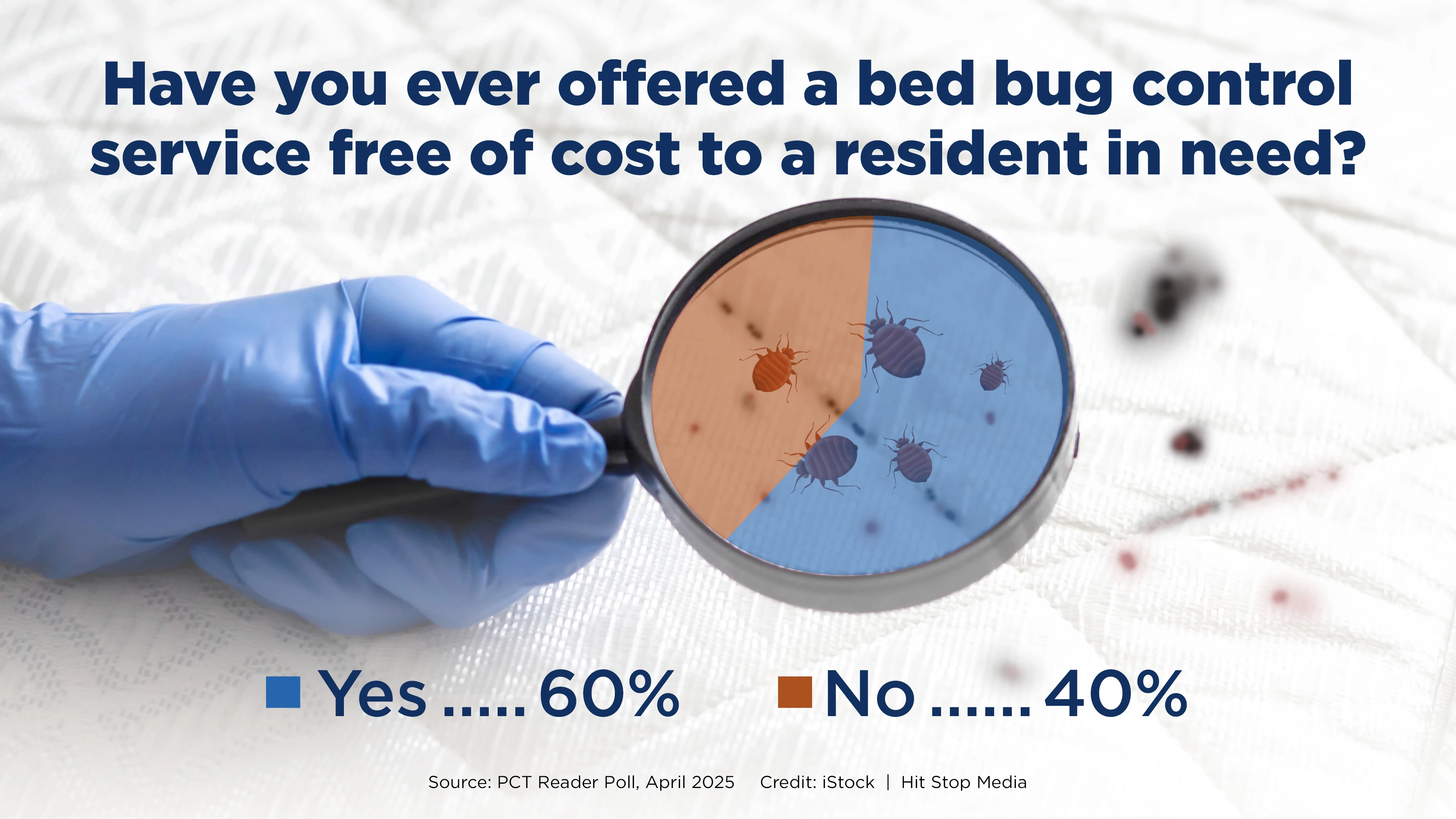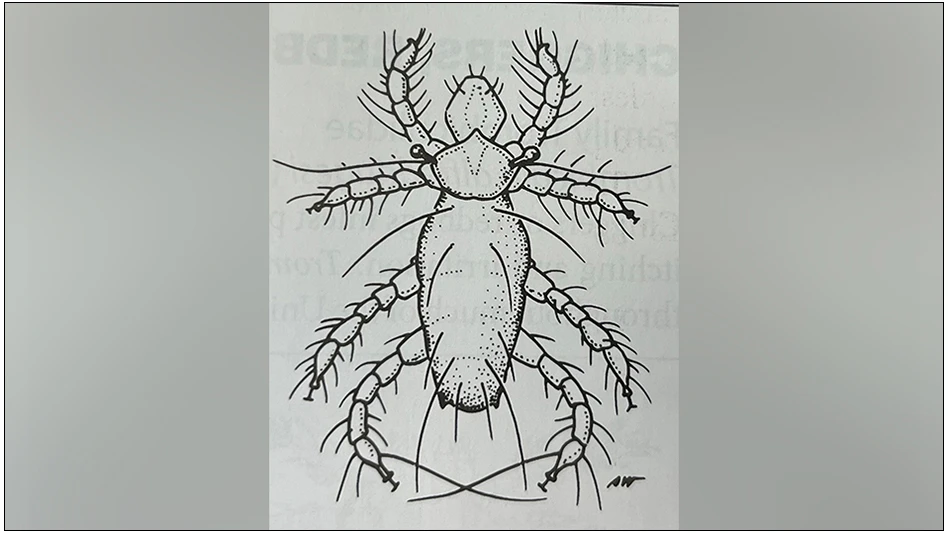PCOs need to be aware that what they say -- and their treatment techniques -- greatly affects their customers' health.
The role of the PCO is changing — dramatically. What once was a job consisting solely of the routine spraying of pesticides has evolved into that of a consultant/inspector/educator who sometimes applies pesticides. Rapid changes in technology and methodology are driving this transformation, as well as a more educated and chemophobic public. For many PCOs, the change has been too sudden and they have left the industry altogether. For others, the transformation has been an exciting opportunity — even a great money-making opportunity.
One rapidly changing aspect of pest control quickly rising to the forefront is that of the PCOs’ role in public health. Just what is the PCOs’ role in human health? And, secondly, how should PCOs respond when asked specific public health-related questions?
PCOs’ ROLE. PCOs are certainly important in protecting human health. Many arthropod and rodent pests are not only a nuisance, but also harbor and/or transmit diseases. Examples include hantavirus associated with deer mice; Rocky Mountain spotted fever and Lyme disease transmitted by ticks; plague carried by fleas; and allergies caused by cockroaches and dust mites. As a public health official, it is clear to me that PCOs help prevent these diseases by killing the disease vectors. If pest control service at a residence leads to killing of any disease vectors (even if it’s only one insect!), then theoretically there is less chance of human vector-borne disease at that residence. I think the pest control industry provides an extremely useful function in society, but I wonder if PCOs themselves recognize this contribution to society.
However, the rapidly changing role of the PCO is, in many ways, a two-edged sword. It cuts both ways. There is the prestige and importance of a public health role, but medical issues are like a mine field. You can "crash and burn" and suddenly find yourself out of business.
The public health (medical) arena is radically different from that of an industrial-based arena where products or services are merely bought and sold. It’s one thing to sell someone a pest service that is unsatisfactory to the customer for whatever reason, but it’s another thing altogether when the customer’s health is affected.
For example, if you think failing to provide adequate termite protection to a structure — leading to a lawsuit — can hurt you financially, think about what harming someone’s health will cost you. After all, what monetary value can be placed on a human life?
BE CAREFUL OF WHAT YOU SAY. PCOs may respond by saying that they don’t directly or intentionally harm anyone’s health. But, they might indirectly.
I knew a PCO who told me he regularly informed customers that he could "control" brown recluse spiders. He explained to me that he used this term instead of "eradicate" because he knew some spiders could be left alive. But think about his terminology from a legal angle. What do you think a customer understands the word "control" to mean? Or how does a lawyer understand "control," should someone in his client’s family get bitten by a brown recluse? Look at the photo detailing tissue damage resulting from a brown recluse bite on the bottom of this page. Imagine what would happen if you had this account and if the bite occurred on the face of a young child. You could easily incur a jury award far exceeding your limit of liability insurance.
Here’s another example. What if a customer asks you to do an outdoor tick job to reduce the deer tick population (and thus protect the family from Lyme disease)? Your wording, both written and verbal, is very important. If you say something like, "I’ll take care of the ticks" and a family member later gets Lyme disease (regardless of where he or she actually contracts the disease), you are subject to a lawsuit. So what is the basis of the suit? Breach of contract — failure to provide a pest-free environment after you said you would.
CAREFUL COMMUNICATIONS. This is not to say that PCOs should walk away from public health-related jobs. It just means that you should be very careful to communicate to the customer exactly what you can and cannot do. Tell them about risk — that your treatment will reduce risk, but certainly will not eliminate risk. It’s a matter of numbers (probability). If there are 100 infected deer ticks in the customer’s back yard and you kill 95 percent of them, you have greatly reduced the risk for contracting Lyme disease. But you have not eliminated the risk. It’s the same situation with spiders causing necrotic sores like the brown recluse or hobo spider. Tell the customer that you will gladly inspect the premises for spiders and treat where necessary, but that you cannot guarantee that all spiders will be gone, and certainly cannot assume responsibility for bites arising from the spider infestation. If this answer is not to the satisfaction of you customer, let him or her find another PCO who is willing to say "they will get them all."
Answering public heath questions and treating for health-related pests is not something to be afraid of, especially if we first clearly define what we will and will not do. Secondly, a disclaimer on the pest service ticket (above the customer signature block) is not a bad idea. It could say something like, "Although we will make every effort to find and treat your pest infestation, due to the variability of pest activity, we cannot be responsible for any arthropod bites or stings occurring during the contract period." If you have further questions about the wording of your disclaimer or other questions about legal liability, contact your attorney or insurance company.
The author is a medical entomologist for the Mississippi Department of Health and Clinical Assistant Professor of Preventive Medicine at the University of Mississippi Medical Center, in Jackson, Miss. He is the author of 71 scientific papers and five books. One of his books, Physician’s Guide to Arthropods of Medical Importance, is in its third edition and is used by public health personnel worldwide. He can be reached at 601/576-7512 or jgoddard@pctonline.com.

Explore the February 2000 Issue
Check out more from this issue and find your next story to read.
Latest from Pest Control Technology
- Target Specialty Products Expands Sales Leadership Team
- FORSHAW Announces Julie Fogg as Core Account Manager in Georgia, Tennessee
- Envu Introduces Two New Innovations to its Pest Management Portfolio
- Gov. Brian Kemp Proclaimed April as Pest Control Month
- Los Angeles Ranks No. 1 on Terminix's Annual List of Top Mosquito Cities
- Kwik Kill Pest Control's Neerland on PWIPM Involvement, Second-Generation PCO
- NPMA Announces Unlimited Job Postings for Members
- Webinar: Employee Incentives — Going Beyond the Annual Raise





